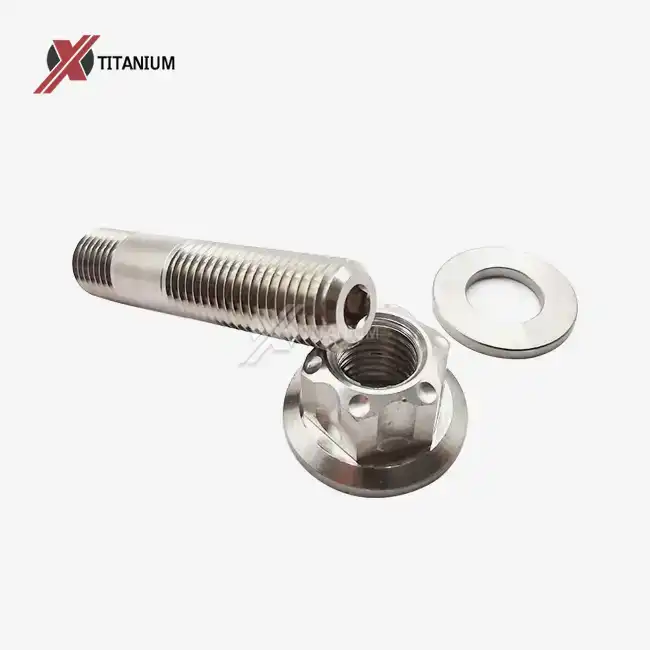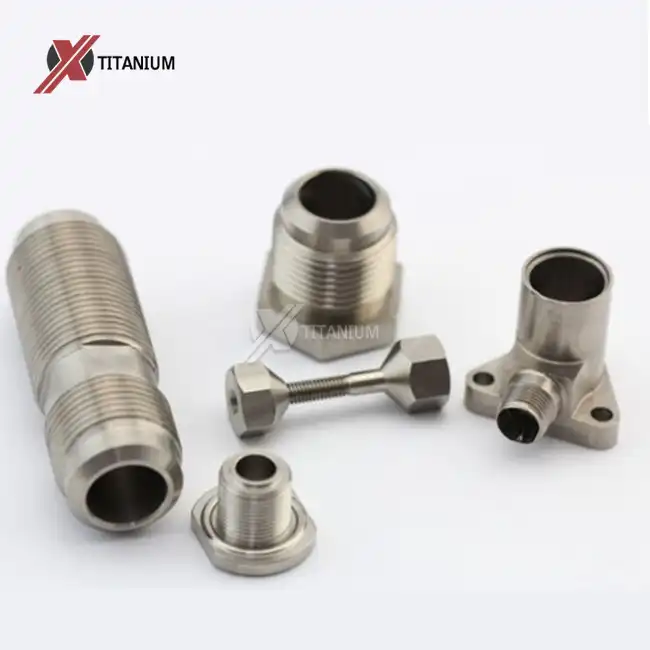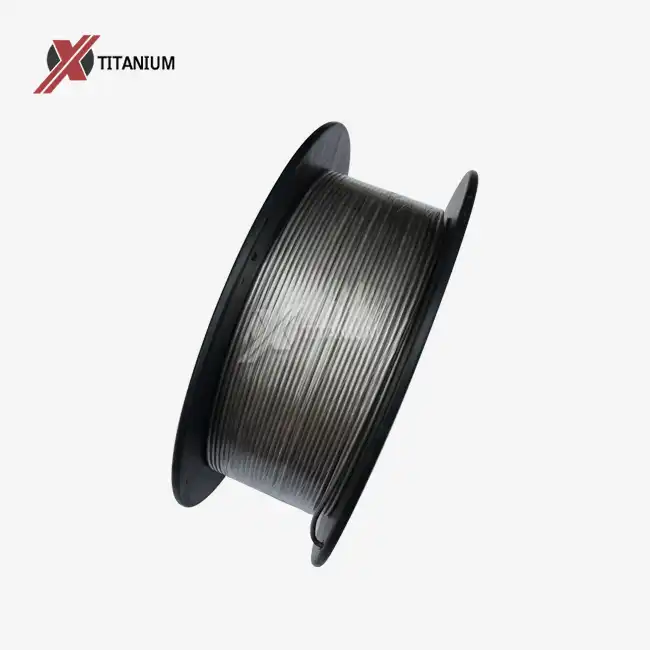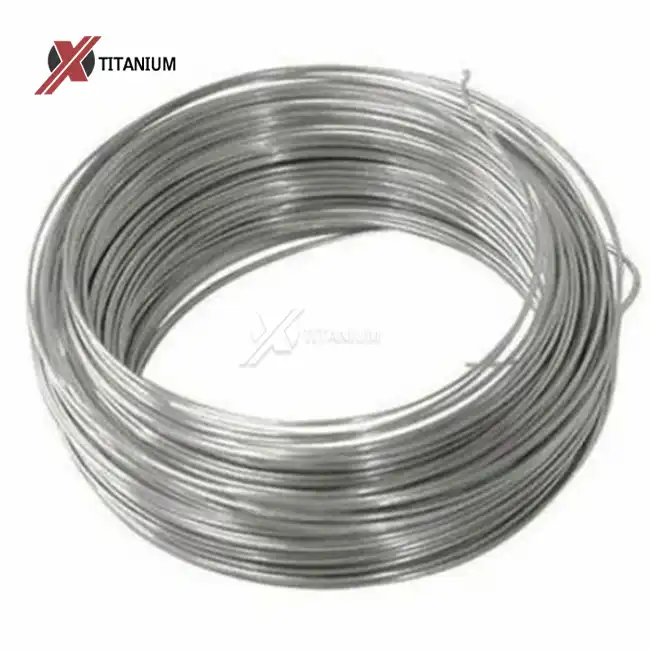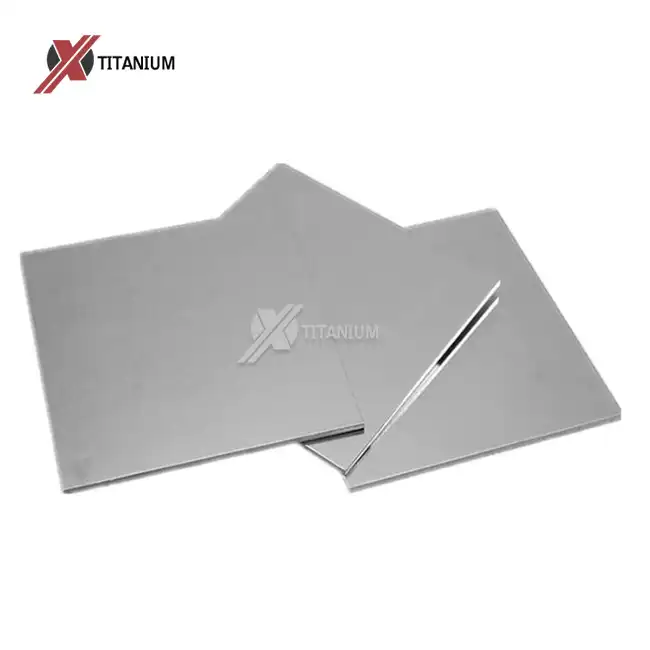The Advantages of Titanium in Exhaust Systems
Unmatched Strength-to-Weight Ratio
Titanium exhaust bolts boast an exceptional strength-to-weight ratio, a critical factor in the realm of high-performance vehicles. This unique property allows these fasteners to maintain robust structural integrity while significantly reducing overall weight. In the competitive world of motorsports, where every gram matters, the utilization of titanium exhaust bolts can contribute to noteworthy performance gains.
The lightweight nature of titanium, coupled with its impressive strength, enables engineers to design exhaust systems that are both sturdy and svelte. This weight reduction translates directly into improved vehicle dynamics, enhanced acceleration, and better fuel efficiency. Moreover, the reduced mass of titanium exhaust bolts can help minimize stress on other components of the exhaust system, potentially extending the lifespan of the entire assembly.
Superior Heat Resistance
One of the most crucial attributes of titanium exhaust bolts is their exceptional heat resistance. In the scorching environment of an exhaust system, where temperatures can soar to extreme levels, titanium demonstrates remarkable stability. Unlike standard steel fasteners that may weaken or deform under intense heat, titanium exhaust bolts maintain their structural integrity and performance characteristics even at temperatures exceeding 600°C.
This thermal resilience is paramount in ensuring the longevity and reliability of exhaust system connections. By resisting thermal expansion and contraction cycles that occur during normal operation, titanium exhaust bolts minimize the risk of loosening or failure. This thermal stability not only enhances safety but also reduces the frequency of maintenance interventions, a significant advantage in both racing and high-end production vehicles.
Corrosion Resistance
The harsh environment within an exhaust system poses significant challenges to conventional fasteners. Exposure to corrosive exhaust gases, moisture, and road debris can rapidly degrade standard bolts, leading to premature failure. Titanium exhaust bolts, however, exhibit exceptional resistance to corrosion, even in these aggressive conditions.
The natural formation of a protective oxide layer on the surface of titanium provides an inherent defense against chemical attack. This self-healing property ensures that titanium exhaust bolts remain impervious to rust and oxidation, maintaining their integrity and appearance over extended periods. The corrosion resistance of titanium not only enhances the reliability of exhaust system connections but also contributes to the overall aesthetic longevity of high-performance vehicles.
Manufacturing Processes and Quality Control
Precision CNC Machining
The production of titanium exhaust bolts demands exacting manufacturing processes to ensure optimal performance and reliability. Precision CNC machining stands at the forefront of these techniques, allowing for the creation of bolts with tight tolerances and superior surface finishes. This level of precision is crucial in maintaining proper thread engagement and ensuring a secure fit within the exhaust system assembly.
Advanced CNC machining centers, equipped with specialized tooling designed for working with titanium alloys, enable manufacturers to produce exhaust bolts with consistent quality. The ability to maintain dimensional accuracy across production runs is vital in ensuring interchangeability and ease of installation. Moreover, the precise control afforded by CNC machining allows for the incorporation of design features that enhance the bolt's performance, such as optimized thread profiles or integrated locking mechanisms.
Material Selection and Certification
The selection of appropriate titanium alloys is a critical step in the production of high-quality exhaust bolts. Manufacturers typically opt for aerospace-grade alloys such as Ti-6Al-4V (Grade 5), known for its excellent balance of strength, weight, and heat resistance. Rigorous material certification processes ensure that each batch of titanium meets or exceeds industry standards, providing assurance of the bolt's performance under demanding conditions.
Quality control measures extend beyond material selection to encompass comprehensive testing protocols. These may include tensile strength tests, hardness evaluations, and metallurgical analyses to verify the mechanical properties and microstructure of the finished bolts. Additionally, non-destructive testing techniques such as X-ray inspection or ultrasonic scanning may be employed to detect any internal defects that could compromise the bolt's integrity.
Surface Treatments and Coatings
While titanium inherently possesses excellent corrosion resistance, various surface treatments and coatings can further enhance the performance and aesthetics of exhaust bolts. Anodizing, for instance, not only provides a decorative finish but also increases surface hardness and wear resistance. This process can be tailored to produce a range of colors, allowing for color-coding of bolt sizes or visual integration with other exhaust system components.
For applications demanding the utmost in thermal protection or reduced friction, advanced coatings such as Physical Vapor Deposition (PVD) or Diamond-Like Carbon (DLC) may be applied. These ultra-thin, high-performance coatings can significantly reduce galling and seizing, common issues in high-temperature fastener applications. The selection of appropriate surface treatments is guided by the specific requirements of the exhaust system design and the operating conditions of the vehicle.
Applications and Future Trends
Motorsports and High-Performance Vehicles
The realm of motorsports remains the primary domain for titanium exhaust bolts, where their unique combination of properties offers tangible competitive advantages. From Formula 1 to endurance racing, these specialized fasteners play a crucial role in maintaining the integrity of exhaust systems under the most extreme conditions. The weight savings provided by titanium bolts, while seemingly minimal in isolation, contribute to the overall strategy of mass reduction that is critical in achieving peak performance.
Beyond the racetrack, titanium exhaust bolts are finding increasing application in high-end production sports cars and supercars. Manufacturers of these premium vehicles leverage the benefits of titanium fasteners to enhance performance, reduce weight, and provide a point of differentiation in a competitive market. The use of titanium exhaust bolts in these vehicles not only serves a functional purpose but also adds a layer of technical sophistication that appeals to discerning enthusiasts.
Aftermarket and Performance Tuning
The aftermarket performance sector has embraced titanium exhaust bolts as a popular upgrade for enthusiasts seeking to enhance their vehicles. These bolts offer a compelling combination of form and function, providing tangible benefits in terms of weight reduction and durability while also serving as a visible indicator of a vehicle's upgraded status. The availability of titanium exhaust bolts in various sizes, finishes, and head styles allows for customization to suit both performance requirements and aesthetic preferences.
Performance tuning shops and exhaust system manufacturers often include titanium bolts as part of their high-end product offerings. This inclusion not only enhances the overall quality and performance of aftermarket exhaust systems but also serves as a marketing differentiator in a competitive landscape. The growing accessibility of titanium exhaust bolts in the aftermarket sector has democratized what was once a technology reserved for elite racing applications.
Emerging Technologies and Material Innovations
As automotive technology continues to evolve, the development of titanium exhaust bolts is poised to advance in parallel. Ongoing research into titanium alloys and manufacturing processes promises to yield fasteners with even greater strength-to-weight ratios and enhanced thermal properties. Innovations in areas such as additive manufacturing may open new possibilities for designing exhaust bolts with complex geometries optimized for specific applications.
The integration of smart materials and sensor technologies into fastener design represents an intriguing frontier for titanium exhaust bolts. Concepts such as bolts with embedded temperature sensors or strain gauges could provide real-time data on exhaust system conditions, enabling predictive maintenance and performance optimization. While such advanced functionalities are still in the exploratory phase, they highlight the potential for titanium exhaust bolts to evolve beyond their current role as passive components.
Conclusion
Titanium exhaust bolts exemplify the relentless pursuit of performance and efficiency in automotive engineering. By offering an unparalleled balance of weight reduction, durability, and heat resistance, these specialized fasteners play a crucial role in the optimization of exhaust systems for high-performance applications. As materials science and manufacturing technologies continue to advance, the capabilities and applications of titanium exhaust bolts are likely to expand, further solidifying their position as essential components in the quest for automotive excellence.
For more information on titanium exhaust bolts and other high-performance titanium products, please contact Baoji Chuanglian New Metal Material Co., Ltd. at info@cltifastener.com or djy6580@aliyun.com. Our team of experts is ready to assist you in finding the ideal titanium solutions for your automotive applications.
